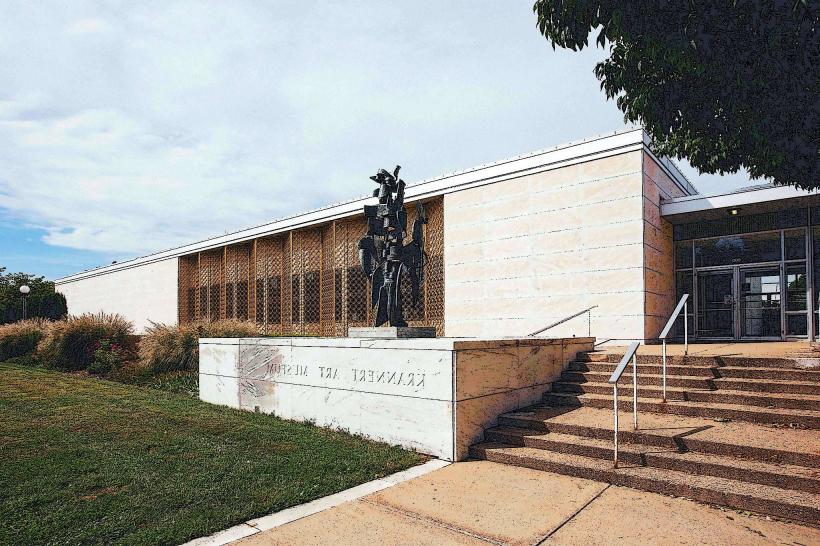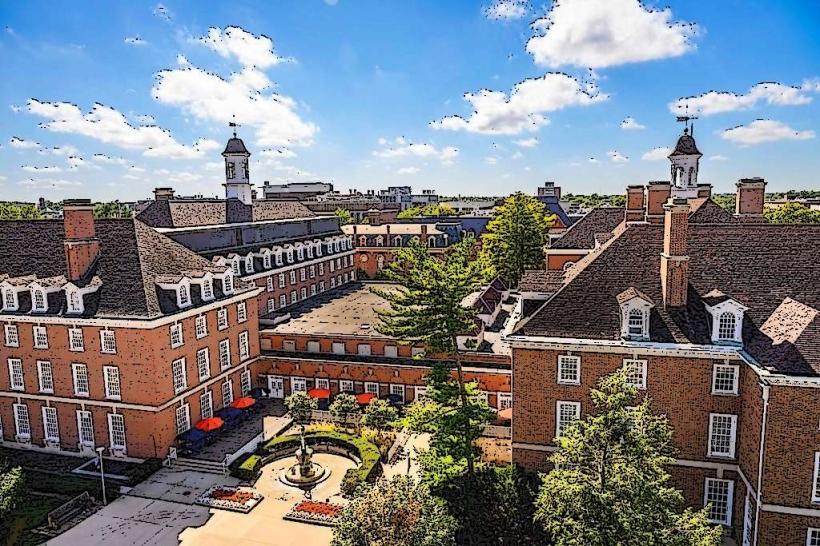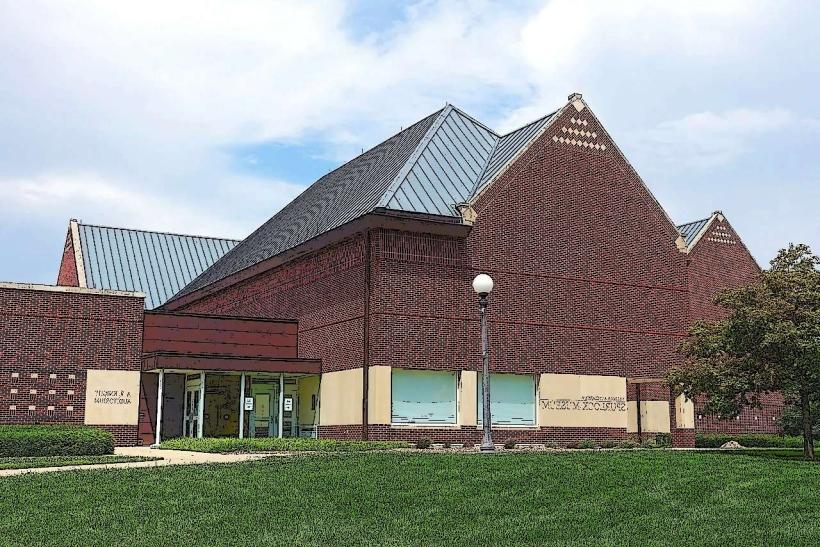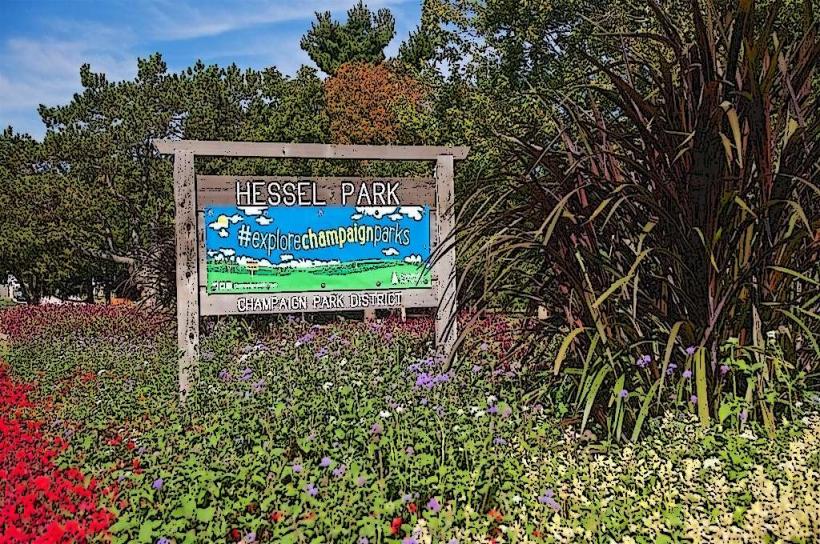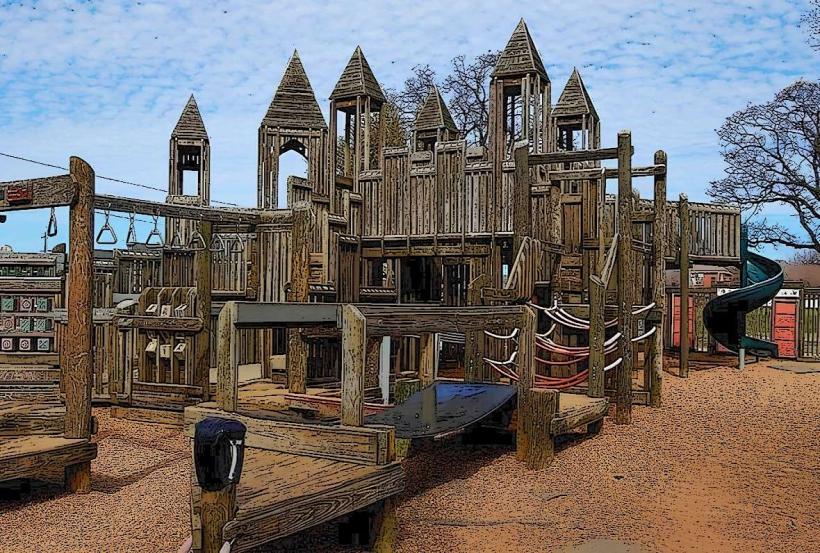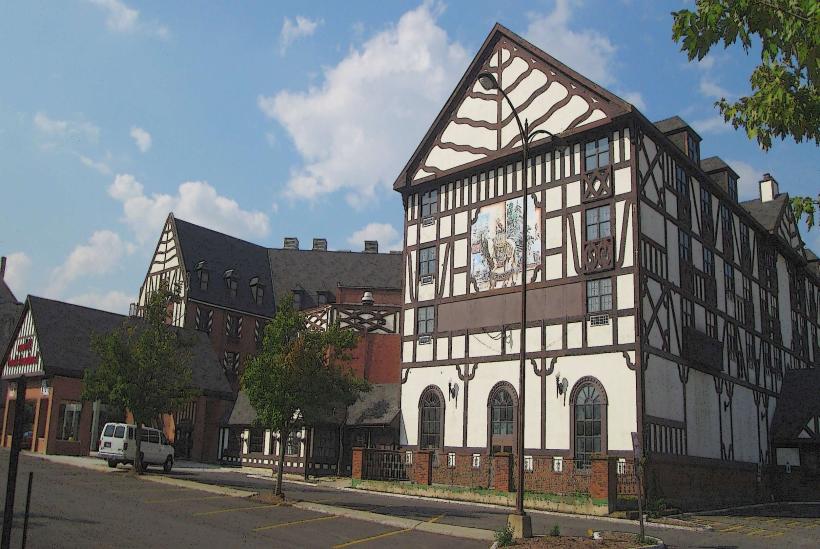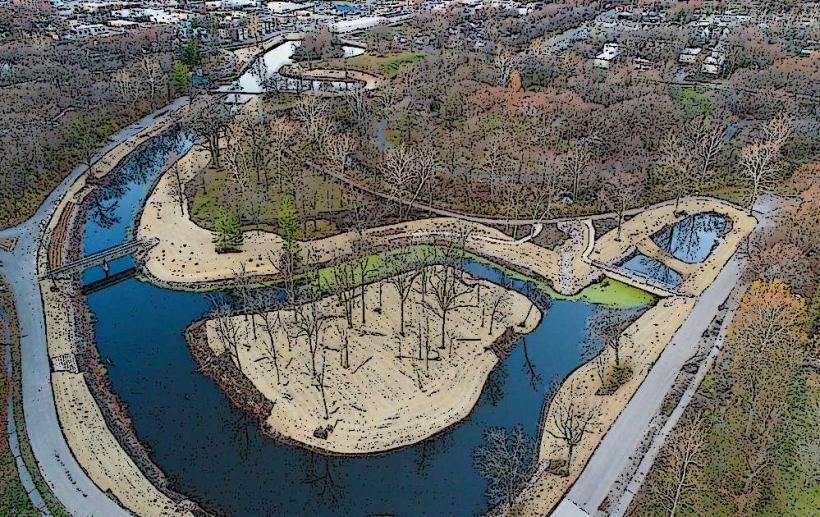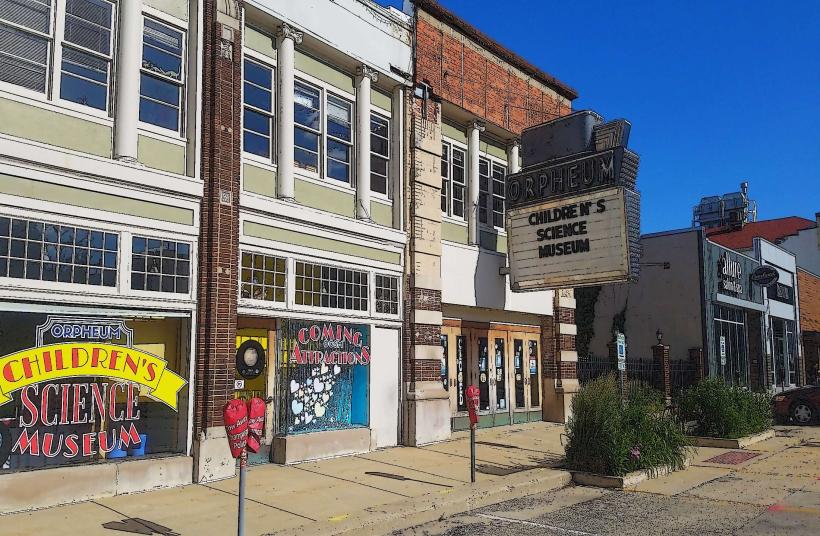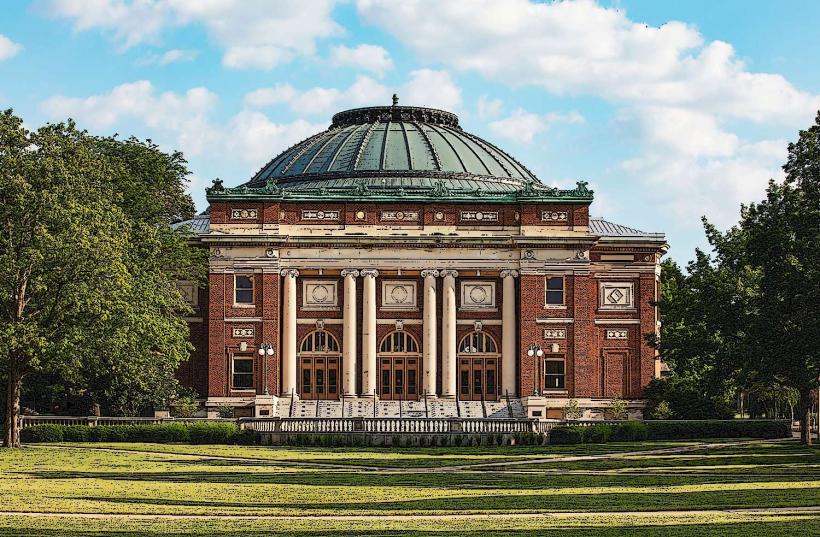Information
Landmark: Champaign County History MuseumCity: Champaign Urbana
Country: USA Illinois
Continent: North America
Champaign County History Museum, Champaign Urbana, USA Illinois, North America
The Champaign County History Museum is located in Champaign, Illinois, USA. It preserves and exhibits the history of Champaign County.
Visual Characteristics
The museum is housed in the former Haskell House, a two-story brick building constructed in the Italianate style. The exterior features decorative cornices, a low-pitched hip roof, and arched windows. The primary building material is red brick, with white trim around the windows and doors.
Location & Access Logistics
The museum is situated at 110 West University Avenue in downtown Champaign. It is approximately 1.5 kilometers (0.9 miles) east of the University of Illinois Urbana-Champaign campus. Parking is available in the adjacent municipal garage on North Market Street, accessible from University Avenue. Several Champaign-Urbana Mass Transit District (CUMTD) bus lines serve the downtown area, with stops within a two-block radius of the museum.
Historical & Ecological Origin
The Haskell House was constructed in 1872 for Colonel Ira Haskell, a prominent local businessman. The building served as a private residence until it was acquired by the Champaign County Historical Society in 1969 and converted into a museum. The architectural style is representative of residential construction in the late 19th century in the American Midwest.
Key Highlights & Activities
Exhibits focus on the agricultural, industrial, and social history of Champaign County. Specific displays include artifacts from early settlers, information on the development of the University of Illinois, and exhibits detailing local businesses and industries. The museum offers guided tours by appointment.
Infrastructure & Amenities
Restrooms are available on the first floor. Limited seating is provided within exhibit areas. Cell phone signal (4G/5G) is generally reliable within the museum. No on-site food vendors are present, but several restaurants and cafes are located within a short walking distance in the downtown area.
Best Time to Visit
The museum is open Tuesday through Saturday. For optimal lighting on exterior architectural details, early morning or late afternoon light is recommended. The museum is generally less crowded on weekday mornings.
Facts & Legends
The Haskell House is rumored to have a hidden passage, though no verifiable evidence of its existence has been found. A verified historical oddity is the museum's collection of over 10,000 historical photographs documenting the growth of Champaign County.
Nearby Landmarks
- Champaign Public Library (0.2km West)
- Illinois Fire Museum (0.8km Southwest)
- Krannert Center for the Performing Arts (1.2km West)
- Spurlock Museum of World Cultures (1.4km West)
- Lincoln Hall (University of Illinois) (1.5km West)

